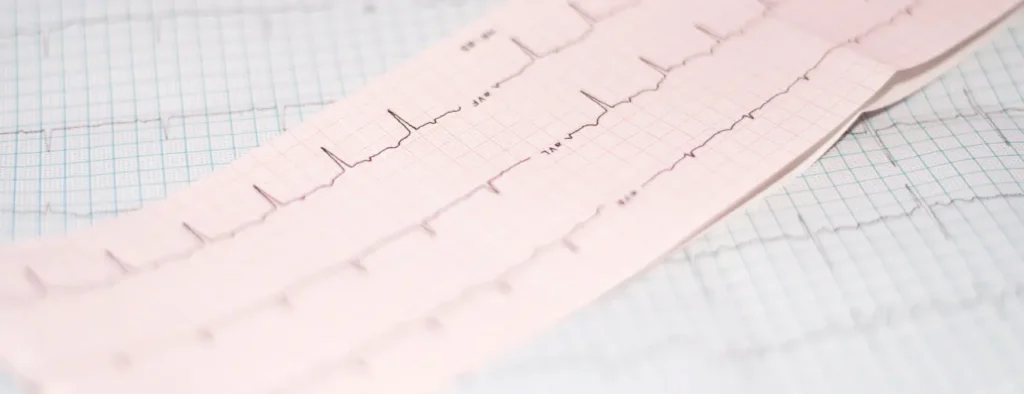TREATMENTS
ELECTROPHYSIOLOGY

What is Electrophysiology?
Electrophysiology is the study of the electrical activity of the heart. An electrophysiology study (EPS) is a diagnostic test that records the heart’s electrical signals. This information helps doctors identify the cause of arrhythmias (irregular heartbeats).
How Do Electrophysiology Issues Arise?
Electrophysiology problems occur when the heart’s electrical system malfunctions, causing irregular heart rhythms. Several factors can contribute to this:
- Heart disease: Conditions like coronary artery disease or heart failure can affect the heart’s electrical system.
- Congenital heart defects: Some people are born with abnormal heart structures that can disrupt electrical signals.
- Medications: Certain medications can interfere with the heart’s electrical activity.
- Lifestyle factors: Excessive caffeine or alcohol consumption can sometimes trigger arrhythmias.
Symptoms of Electrophysiology Issues
Symptoms of electrophysiology problems vary depending on the type of arrhythmia. Some common symptoms include:
- Palpitations
- Chest pain or discomfort
- Shortness of breath
- Dizziness or lightheadedness
- Fatigue
- Fainting
It’s important to note that these symptoms can also be associated with other health conditions. If you experience any of these symptoms, consult your doctor for a proper diagnosis.
Treatment Options
Treatment for electrophysiology issues depends on the type and severity of the arrhythmia. Options may include:
- Medications: Anti-arrhythmic drugs can help regulate heart rhythm.
- Lifestyle changes: Reducing stress, limiting caffeine and alcohol, and getting enough sleep can help manage some arrhythmias.
- Catheter ablation: A procedure to destroy abnormal heart tissue causing arrhythmias.
- Implantable devices: Pacemakers or defibrillators may be necessary in some cases.
It’s essential to consult with a cardiologist for a proper diagnosis and treatment plan.
Recovery and Rehabilitation
Recovery from electrophysiology procedures varies depending on the type of treatment received. It’s important to follow your doctor’s recommendations for post-procedure care and rehabilitation.

Om Heart Care is a top-tier cardiac clinic committed to offering heart patients quality and compassionate care. Our clinic was established by renowned interventional cardiologist Dr. Priya Palimkar, who has over twenty years of experience. We are dedicated to providing modern treatments and individualized care.
CONTACT
- +91 9890790780
- info@drpriyapalimkar.com
-
Monday - Saturday
Sunday Closed -
Viman Nagar Clinic
11:00 AM - 02:00 PM
06:00 PM - 09:00 PM
Vishrantwadi Clinic
03:30 PM - 06:00 PM
GET DIRECTIONS
Viman Nagar Clinic
Vishrantwadi Clinic
Copyright © 2024. All Rights Reserved | Designed by DIGIOTREE PVT LTD | Disclaimer | Privacy Policy | Terms & Conditions

